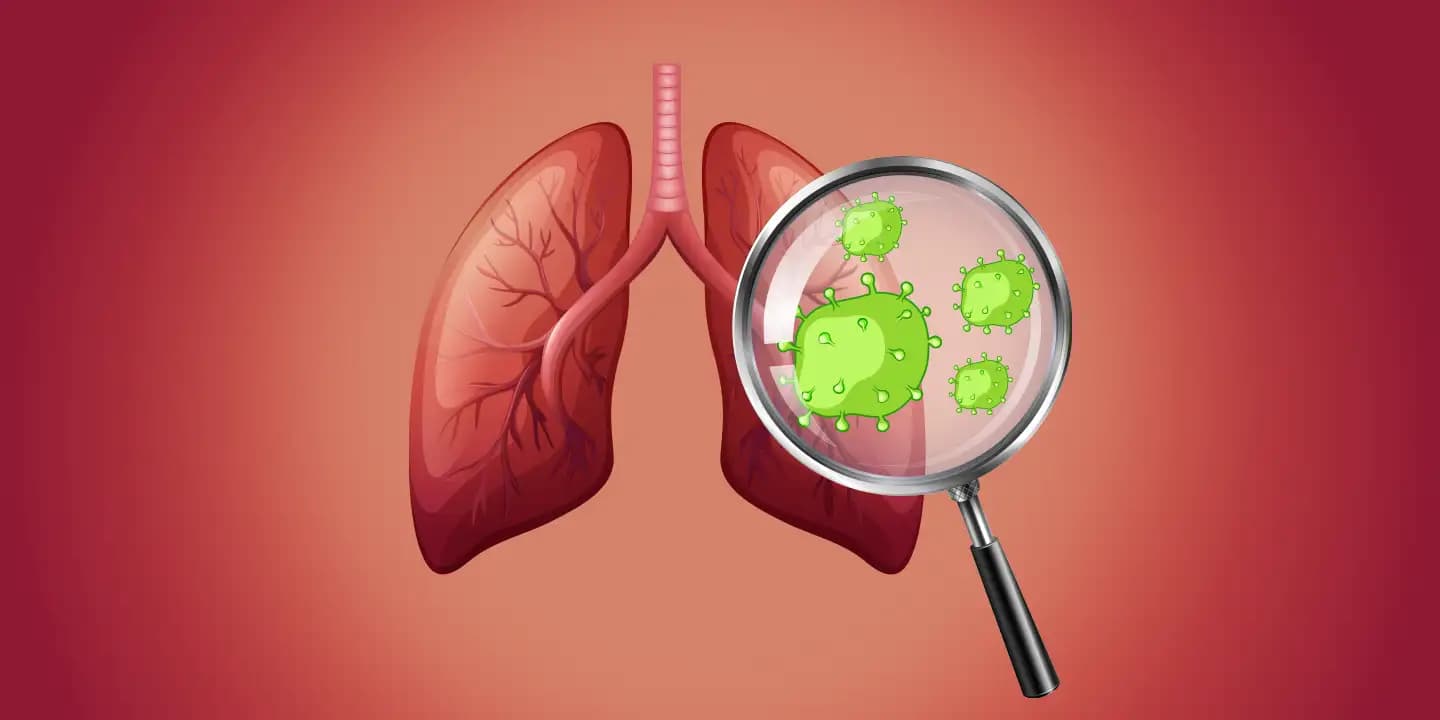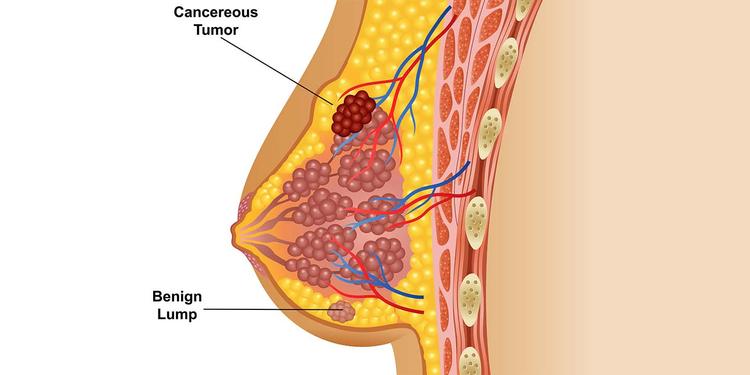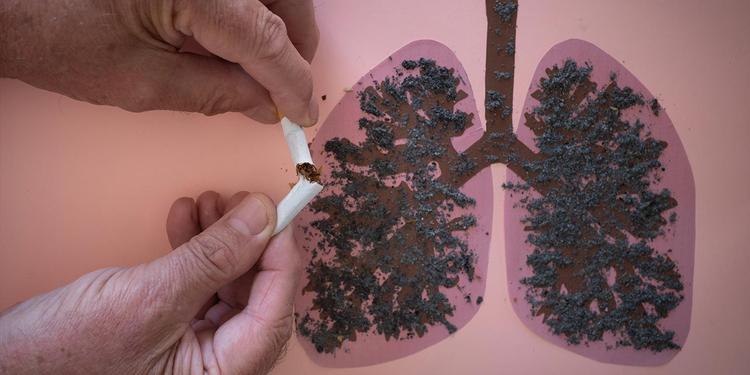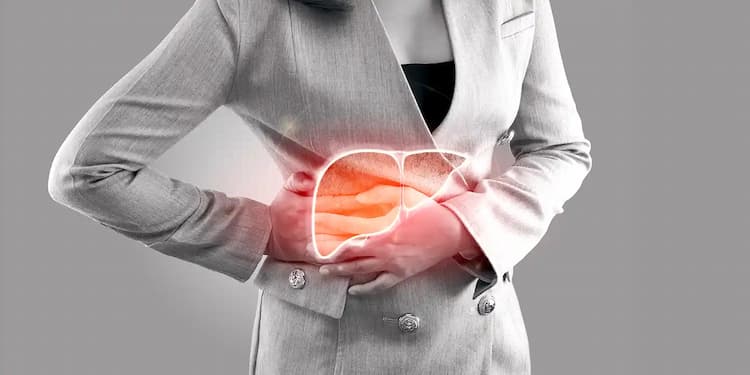Lung cancer: prevention, symptoms, and treatment

Medically Reviewed By
Dr Divya Rohra
Written By Srujana Mohanty
on Jun 13, 2022
Last Edit Made By Srujana Mohanty
on Mar 16, 2024

Global reports suggest that lung cancer has the “highest incidence and mortality rate” in the world, accounting for over 1.7 million deaths each year. It is often regarded as the most aggressive form of cancer that starts in the lungs and then gradually spreads to the other parts of the body.
Lungs are vital organs in our body that are responsible for respiration and distributing oxygen throughout our body. Cigarette smoking is hands down one of the most common factors that contribute to the risk of lung cancer.
The early symptoms of lung cancer are often very subtle and undetectable, which makes it very difficult to diagnose in the earlier stages. With the alarming rise in its incidence, the medical community is trying to make more and more types of treatments are becoming accessible to people globally.
This article will explore more about lung cancer, its symptoms, causes, types, and treatment options.
What are the Different Types of Lung Cancer?
To better understand the survival rate of lung cancer, understanding the types is crucial. On the surface, lung cancer is typically divided into two types – Non-Small Cell Lung Cancer (NSCLC) and Small-Cell Lung Cancer (SCLC).
Furthermore, these individual types of lung cancer are further divided into more categories, which we will explore down below.
| Type of Cancer | Rate of Prevalence | Further Subcategories |
| Non-small cell lung cancer (NSCLC) | 80-85% | -Squamous cell carcinoma (affects the lining of the respiratory tract).
-Adenocarcinomas -Adenosquamous carcinoma (affects the squamous and mucus-producing cells in the lungs) -Large cell carcinoma (unclassified type of NSCLC). |
| Small-cell lung cancer (SCLC) | 15-20% | A more aggressive form of lung cancer that grows and spreads at a rapid rate and is often metastasized by the time of diagnosis. |
| Mesothelioma | Very rare | Affects the protective membrane the shields and protects most of the vital organs. |
What are the Causes of Lung Cancer?
Lung cancer is a progressive disease that is triggered by a variety of risk factors. Besides the few accessory causes, smoking accounts for 90% of the problem. That’s what contributes to the majority of lung cancer diagnoses every year.
The smoke that you inhale when smoking cigarettes has unregulated impacts on the lung cells and tissues in the organ. The more one smokes, the worse the symptoms get over time. Unlike NSCLC, small-cell lung cancer (SCLC) is always due to smoking.
But, what about people who are diagnosed with lung cancer but have never smoked a single cigarette in their life? Several chemicals or toxic substances could be a trigger for such cases. Some of these hazardous chemicals include radon, asbestos, cadmium, nickel, etc.
You might also be at risk of developing lung cancer due to the following risk factors:
Second-hand smoking/ Passive Smoking– happens when you indirectly inhale the smoke coming from a cigarette when you are in close vicinity to someone smoking.
Radon exposure – radon drastically alters the lung’s anatomy and physiology, leading to risks of lung cancer in non-smokers.
Toxic substance exposure – hazardous chemicals like asbestos, diesel exhaust, etc. enhance the risks of lung cancer.
Genetic predisposition – family medical history of lung cancer can increase the risk of lung cancer in the succeeding generations.
Recurrence – the prevalence of lung cancer recurrence in an already diagnosed patient in remission is quite high.
Exposure to radiation – history of radiation therapy to the chest can contribute to the risks of lung cancer.
These are some of the common causes of lung cancer that one should be wary of. Knowing the risk factors also helps in the prevention of lung cancer.
What are the Symptoms of Lung Cancer?
There isn’t a standard symptom of lung cancer. Instead, it projects as a compilation of symptoms, often in the advanced stages. Detecting the incidence of lung cancer in the earlier stages is often difficult since the symptoms don’t project until the later stages.
That aside, some of the lung cancer symptoms worth taking into consideration are:
- Persistent cough
- Coughing up blood (in the phlegm or sputum)
- Hoarseness in the voice
- Shortness of breath
- Chest pain and tightness
- Bone pain
- Unexplained weight loss
- Headache
- Chest infections that are recurrent
The above symptoms are often seen in earlier stages of lung cancer. If you start noticing rapid weight loss without actively trying, it could indicate an advanced stage of lung cancer in the patient. Eyelid drooping and constant fatigue are also common symptoms.
How is Lung Cancer Diagnosed?
When it comes to diagnosing the risks or possibilities of lung cancer, it is done in three stages.
- Testing in healthy individuals
- Different types of blood and imaging tests for a conclusive diagnosis
- Tests to determine the stage or extent of the lung cancer
Let us discuss them all in detail.
Testing in healthy people
If you are at risk of developing lung cancer due to genetic predisposition or personal habits, getting an annual screening is ideal.
This is often done using low-intensity CT scans, especially in people who were heavy smokers at one point in life and have now quit.
Diagnostic tests for the detection of lung cancer
Depending on the symptoms, if your doctor suspects that you might have lung cancer, they will prescribe three tests to further confirm their suspicions. These include:
Imaging tests – which involve chest X-rays to look for tumors or nodules in the lungs. CT Scans and MRIs are also advised in advanced cases for a more comprehensive look at the state of cancer.
Sputum cytology – analyzing the coughed-up sputum under a microscope to look for signs of lung cancer.
Biopsy – involves excision of a tissue sample from the affected site in the lungs, which is further diagnosed to check for possibilities of lung cancer. The tissue sample is generally collected using bronchoscopy, mediastinoscopy, or needle biopsy.
Tests to determine the extent of cancer
Once your doctor has a conclusive diagnosis of lung cancer, the last stage is to determine which stage it is in. Understanding the stage or extent of cancer allows the doctor to plan the right treatment route.
Some of the common ways to assess the stage or extent of lung cancer are with CT scan, MRI, or PET scan.
How is Lung Cancer Treated?
The treatment of lung cancer depends on the stage of cancer. With advancements in the field of medicine, more and more treatment options are becoming readily available.
Earlier stages of cancer often include more aggressive forms of treatment like surgery, chemotherapy, radiation, etc. The advanced stages of the patients in the final stages of lung cancer often undergo palliative care to treat their symptoms and offer medical assistance to ensure that the rest of the days are spent comfortably.
Some of the most targeted treatment options include:
Surgery – which involves the removal of the lung cancer with a margin of healthy tissue in the surrounding. This might also involve the removal of lymph nodes in the chest. Some of the surgical types include wedge resection, segmental resection, lobectomy, and pneumonectomy.
Radiation therapy – uses high-powered energy beams using X-rays and protons to damage and destroy the cancer cells.
Chemotherapy – drug-based therapy that targets and kills the cancer cells. The same is given orally or intravenously.
Targeted drug therapy – uses drugs to kill the cancer cells by focusing on certain abnormalities in the cancerous cells. It is often used in patients with recurrent lung cancer.
Immunotherapy – leverages the body’s immune system to fight back cancer. It interferes with the cancer cell’s production of a protein that shields it against the immune system. Bypassing this enables the immune system to fight and kill the cancerous cells.
Lung cancer treatment is often aggressive and prolonged since it spreads at a very faster rate compared to the other types of cancer. Your oncologist will discuss all the options at length and give you a clear understanding of the pros and cons of each treatment option.
How to Prevent Lung Cancer?
Preventive measures for lung cancer start with assessing the risk factors and then switching poor habits and lifestyle choices.
Following are a few ways of prevention:
- Avoid smoking cigarettes, vapes, etc. This involves reducing the risks of second-hand smoking too.
- Avoid staying in close vicinity of chemicals and hazardous toxic substances like radon, asbestos, etc.
- Switch to a healthy diet filled with fruits and vegetables.
- Lead an active lifestyle by exercising once a day.
Practicing these preventive measures don’t 100% guarantee that you won’t have lung cancer. However, it reduces the risks exponentially.
Frequently Asked Questions
-
What is the primary prevention for lung cancer?
Smoking control is the most definitive way to prevent lung cancer.
-
What is the best treatment for lung cancer?
Surgical excision of the tumor or affected nodules in the lungs is considered ideal. If that isn’t possible, chemotherapy and radiation are the next steps.
-
Can lung cancer be cured?
The prognosis for lung cancer depends on the stage it is diagnosed. Early detection allows better chances of cure, which might not be as bright in a late or advanced diagnosis.
Conclusion
Lung cancer is one of the leading causes of death in the world. However, it is one of the most preventative forms of cancer if one stops smoking and adopts a healthier lifestyle. If you are at risk of lung cancer, opt for annual screening to rule out any possible complications. Remember that an early diagnosis has a fair and quicker chance of recovery, which isn’t always the case with a late diagnosis. Stay informed about the symptoms and seek medical care if something seems amiss.


